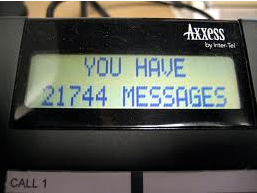
By Jake Poinier
As a parent, your job is never done in correcting your kids’ use of the English language. I was reminded numerous times this morning as my high-school age son began a story with “George and me…” followed by my middle-school daughter injecting “like” into every other sentence. What I try to convey to them is that, while these are the types of things that help you not seem like a dork among peers, it’s not the way to impress teachers and (eventually) bosses.
With that thought, Joe’s post this week about being fearless triggered a memory for me on how we present ourselves as freelancers. As an entrepreneur who works with intellectual property, you are selling your skills — but you’re also selling yourself. And I can point to one single experience that was a sure-fire confidence builder far beyond all of the sales and marketing seminars I’ve ever attended.
I’m talking about Toastmasters.
I was required to attend a local chapter as a newbie salesperson back in the late ’90s. At first it seemed hopelessly contrived. The meetings are very structured, with different roles (timer, Jokemaster, emcee, etc.) assigned to each of the participants, and a very rigid timeline of what has to happen when. But even though my membership long ago lapsed, the lessons have stuck with me:
- You get honest feedback on your presentation content and style. Having a third-party perspective on your speech patterns and gestures is an eye-opening, “do-I-really-do-that?” experience. With a little guidance and weekly practice, it’s amazing how fast you make progress and cure presentation anxiety. Bonus: If you say “um” and “ah” a lot, you’ll be cured of the habit.
- You learn how to give honest feedback. Even when someone bombs, your job is to identify what they did well and help build on it. Yes, this is helpful when “guiding” your freelance clients to avoid or change something awful.
- You learn how to be concise. Whether you’re telling a brief anecdote or giving a 5-minute speech, there’s a light box that signals yellow, green or red to tell you how you’re doing on time. Talking too much can be a deal killer.
Bottom line, if you have any fear about public speaking, your local Toastmasters chapter will help eradicate it in a fun, friendly, supportive environment. More important, you’ll feel far more confident presenting yourself in general, whether it’s making cold calls, pitching a new client, leading a writing seminar, or accepting a Nobel Prize in Literature.
What’s been your biggest confidence builder as you’ve started and grown your freelance business — workshop, club, personal guru? Please share in the comments!
When he’s not hanging around Freelance-Zone, contributing blogger Jake Poinier runs Boomvang Creative Group and offers freelancing advice under the pseudonym Dr. Freelance.




 By Jake Poinier
By Jake Poinier By Jake Poinier
By Jake Poinier
